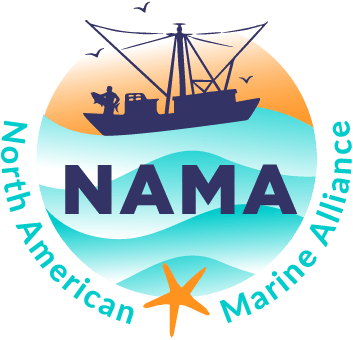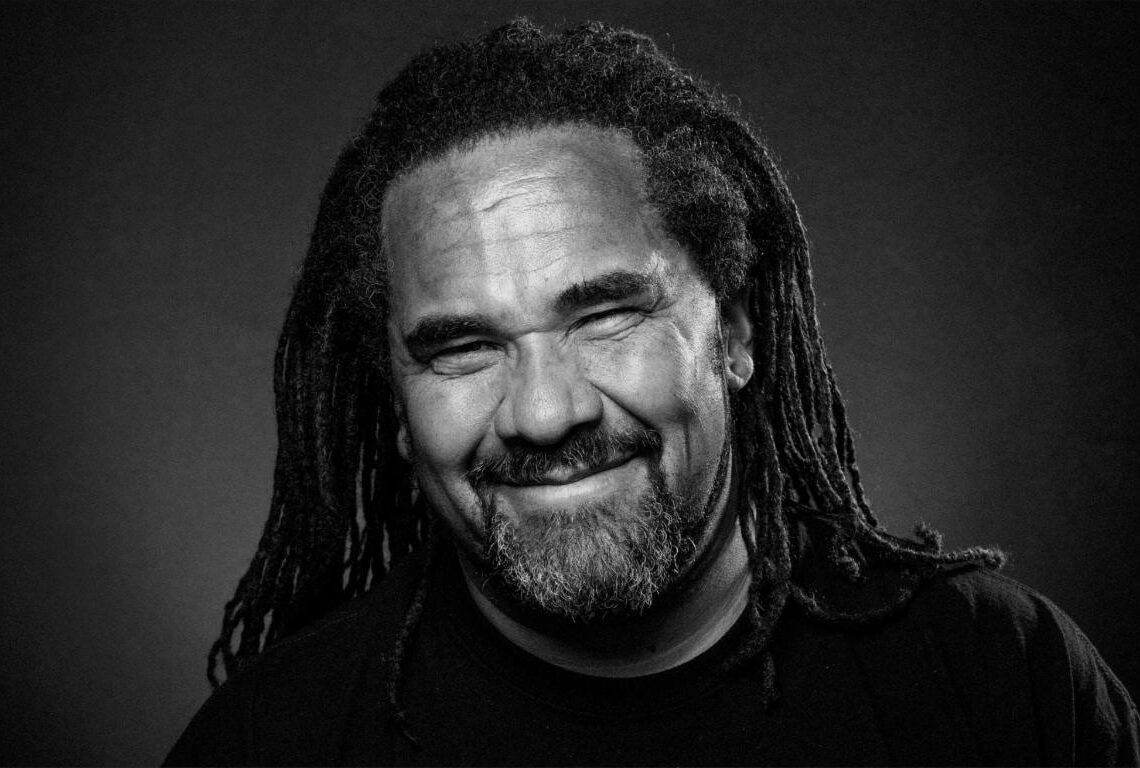March 27, 2020
Friends, fellow fishers, and community advocates,
My name is Jason Jarvis, a commercial fisherman from Westerly, Rhode Island. I have served on NAMA’s board for the past five years and recently accepted the position as Board President. Throughout my career I have been an active community member, raising pressing concerns and issues especially to members of Congress about the flawed regulatory system and the equity imbalances within our fishing industry. I see these efforts reflected in NAMA’s mission, values, and work, which is why I take pride in being a member of NAMA’s community. As one of thirty small-vessel fishermen based in Westerly, I feel it is my duty to ensure small- and mid-scale fishing operations are represented and heard by local officials, which is in part why I am one of a few commercial fishing representatives on the Rhode Island Marine Fisheries Council (RIMFC). As a way of introducing myself, I want to take this opportunity to share with you why NAMA’s work in supporting community based fisheries is more important than ever. Today, we are faced with an unprecedented crisis, small-and-mid sized fisheries are an essential service and we need to be given the opportunity to help. We’re calling on you to call on Congress.
Westerly, probably like many small fishing communities across the nation, has lost most if not all infrastructural support of any kind to aid small- and mid-scale fishing operations. We do not have a municipal dock anymore, which means we don’t have access to directly sell our fish to our community. With only one fish dealer at our disposal and forty-five minutes between us, we either have to travel to the fish dealer or vice versa. Difficulties like these abound and we make every effort to meet these challenges, but the local seafood still can’t be found in any restaurant in Westerly. This trend is reflected nationally where the fishing industry exports 60% of the local harvest while only a small portion of the seafood sold and processed in the U.S is utilized regionally. Amidst these barriers and despite minimal funding, my fellow Rhode Island artisanal fishermen and I have been hard at work developing a fishmonger label of our own–one that can fill the high demand for locally sourced seafood.
Today, we’re faced with even greater obstacles. Our communities need food and we, local producers, have been shut down. The current COVID-19 pandemic has amplified people’s need for affordable and healthy food, which we could provide if our boats weren’t tied to the docks. Many of us would have begun clamming over a week ago, but in less than two weeks we’ve been completely shut down. Dealers are no longer knocking on our doors because of recent restaurant closures and a lack of business demand. COVID -19 has already begun to shut down the majority of community based fishing industries and unfortunately, even those who haven’t been shut down, are well on the way if Congress does not act now.
Sadly, we did not arrive here by sheer chance. The system itself has long been flawed and exploitative. Our system is set up to support the global economies of scale, not community-based fishing operations and food systems. Fish dealers are dependent on large scale landings to keep their doors open, but we are dependent on the fish dealer because in Rhode Island like many other fishing communities, it is not yet legal for small scale fisheries to sell directly to the public. On top of that, our work and commitment has been consistently dismissed, intensified not only by this State’s supposed concern with saving the environment but also the corporate extraction sucking our lifeblood.
My state touts its commitment to reducing our carbon footprint but we send the majority of our local seafood overseas to be processed, actually increasing our seafood’s carbon footprint. If the state generated half of its food for its own population, it would actually reduce our carbon emissions. University of Vermont Medical Center calculated that by shifting to buying seafood regionally, it reduced its carbon footprint to less than 1,000 miles. At the same time, community based fishermen are being kept off the ocean and expansion of wind farms are escalating.These wind farms are being proposed in estuaries and fishing grounds we have been working tirelessly to protect. These developments, driven by companies like Shell Oil, will endanger the very fishing grounds that many fishers have given up so the fish can have a chance to survive. While we do need to think about alternative energy, we need to think holistically. What we have always known and what the COVID-19 virus is now teaching all of us, is that we should focus on feeding our communities.
We’ve long been trying. Even though the State has finally taken some measures to provide direct sales (dock to plate) to the community, it’s only been after years of feedback from our local fishers. The big players in our state still have far too much influence over the current governing body. Much like many of my fellow fishers, we do not want our lives and livelihood to be owed to mega-corporations who prioritize profits over anything else.
This dismissal and misprioritization has surely contributed to the rampant mental health issues and addiction within the fishing industry. I have been personally affected by this. Three years ago, I was scheduled to meet with government officials to discuss the economic issues plaguing our industry when I was forced to confront the hidden harms afflicting our fishing community. The day before the meeting, on August 3rd, I had to cut my son’s body down from a rope in my front yard. He was only 21 when he took his own life. Since the age of two, my son fished alongside me. He spent his youth from age seven to fifteen on the Seven Bs charter vessel hosting local fishing excursions. He then spent two summers gillnetting with his uncle and me as well as worked on a freezer boat with his cousin. All the while, he was trying to cope with mental health issues and addiction. My son, like many others, did not have health insurance or access to mental health services. If fishing communities were not obstructed from making a livable wage and funds were available to crew members for health services, the number of suicides would surely be reduced.
Now, more than ever, we have come to realize that we can’t depend on import/export markets and we have to take care of each other. In fact, we have been feeding our communities for centuries before the global commodities markets took away our fishing rights, vertical integration took away access to critical infrastructure, and multinational corporations exported wealth out of our communities. I apologize if I sound angry or jaded but it has taken far too long to get to this point. I write this letter with no income, unable to pay my bills or mortgage, and without the funds to afford my slip to fish. It’s time for small- and mid-scale fishers, who help hold this world together, to be supported. That’s the work that NAMA has taken up, and the reason why I’m ready for the task of taking the helm at an organization that is dedicated to restoring marine ecosystems by supporting community-based fishing operations.
The COVID-19 crisis is opening more eyes to these problems. NAMA has partnered with the National Family Farm Coalition (NFFC), Farm Aid, HEAL Food Alliance, Institute for Agriculture and Trade Policy (IATP), and WhyHunger to develop a set of policy demands that the US Congress must heed as it develops the next stimulus package. People were already living paycheck to paycheck before the COVID-19 crisis and soon, if nothing is done, they may be living on the streets. We need to act now because we are just starting to see the impact of this health disaster.
My ask of you is simple: call your representative. Demand action and a plan that fixes our broken system. Use this action letter as a guide to contact your elected officials today.
For my fellow seafood eaters and food producers, here are a few resources to check out:
- The Local Catch Network has made it even easier for you to find affordable and healthy seafood within your area. NAMA helped launch the Local Catch Network back in 2012 and today serves as backbone support for the network.
- If you are a fisher, seafood business, or community advocate looking to support these individuals, stay tuned for Local Catch’s upcoming webinar
Most importantly, act today. Write your members of Congress. Support your local fishing industry. Demand and eat local seafood. And, for now, stay home to help stop the spread of this virus that is compounding the problems our communities have already been struggling with for decades. This virus may be showing us the real problems with our current systems, but it’s also showing us our collective humanity and possibilities for a different future.
Sincerely frustrated yet hopeful,
Jason Jarvis

